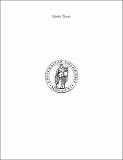| dc.description.abstract |
This thesis provides theoretical arguments and empirical evidences to illustrate the potential economic benefits of an effective reform of the Latin American judiciaries. First, I suggest a concept of judicial efficiency and I illustrate with a simple model some possible trade-offs that might arise in the design of the judiciary, regarding the incentives of some actors involved in the process. The economic rationale is spelt out through several microeconomic mechanisms in which the judicial efficiency may play a very important role to enhance further economic development. These mechanisms are contextualized in the Latin American region, and are embedded in a long-run growth framework to identify the possible macro implications. In order to contribute to the empirical literature on institutions and economic growth, I run several panel data regressions to illustrate the potential impact of different quantitative judicial indicators on several economic and institutional variables commonly associated with the creation of wealth. |

